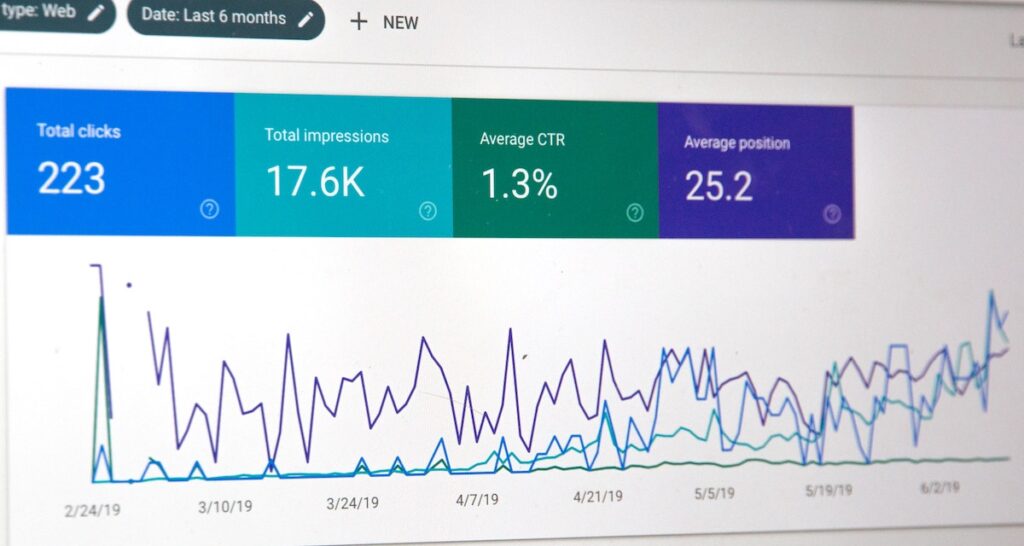
What Does a Family Nurse Practitioner Do?
Family nurse practitioners perform most of the same tasks as [...]

Search engine marketing, or SEM, is one of those nebulous terms that can be broad or narrow, depending on the user’s intentions. For some, SEM refers to all the different strategies employed to increase a site’s visibility in search engines—from search engine optimization (SEO) to pay-per-click (PPC) advertising—and to increase a site’s usefulness to visitors. Others assert that search engine marketing refers solely to the impact of paid ads (you might see someone refer to organic search engine optimization, or SEO, versus paid SEM).
Keep this significant distinction in mind as you research how to become an SEM specialist. In this article, we use the broader definition of search engine marketing, but you will encounter employers posting job ads for SEM specialists when what they’re after is a PPC wizard. The best thing to do if you’re serious about building a career in search marketing is to make sure you know enough about content optimization, technical optimization, and paid ads to impress, no matter what a potential employer is looking for.
In this article about how to become an SEM specialist, we’ll cover:
SEM specialists are digital marketing professionals with a deep understanding of how search engines rank and display websites and pages. They use this knowledge to help companies create and execute on data-driven digital marketing strategies that include:
The goal of all of these activities is to enhance and expand a company’s online presence so more people find them.
The tl;dr version is that SEM specialists are experts in making websites more visible in search results. When a company wants to rank number one in search results, it calls in a search marketing specialist.
| University and Program Name | Learn More |
|
Pepperdine University:
Online Master of Business Administration
|
|
|
Stevens Institute of Technology:
Online Master of Business Administration
|
|
|
The University of Tennessee:
Online Master of Business Administration
|
The answer to this question depends on who you ask. In general, people in the digital marketing space treat SEO as a part of SEM. They use “search engine marketing” as an umbrella term covering all the internal and external things businesses can do—including social media advertising, sponsored content, influencer marketing, and advertising-focused content—to get more organic and paid traffic, thereby increasing search engine visibility.
Search engine optimization encompasses all the strategies companies apply internally to their own content to get higher organic rankings in the SERPs (search engine results pages). This can include:
SEO is the most important thing a company can do to get long-lasting search engine visibility. Optimizing a site takes time and money (and is an ongoing process), but also one that results in free traffic 24/7 (at least until the next Google algorithm update drops).
PPC and other types of paid campaigns have better results in the short-term because paying for ads puts a site at the top of the SERPs immediately (assuming those ads are correctly optimized). However, when ads stop running, there’s no lasting impact on search ranking. PPC has no effect on SEO and vice versa. Smart SEM campaigns always include both.
SEM specialists have a long list of responsibilities. As an SEM specialist, you’ll monitor website analytics, research keywords, optimize content, and write and place paid ads. You’ll be expected to understand not only Google’s algorithm but also how other search engines rank pages and the growing role social media plays in what ranks. On any given day, you might:
That last bullet might just be the most critical responsibility you’ll have when you become an SEM specialist. That’s because search engines are always trying to out-game the people trying to game the system to rise through the ranks to that coveted number one spot. As search algorithms change, your roles and responsibilities will change, too.
Search engine marketers have to have technical skills, including a basic understanding of HTML, CSS, spreadsheets, databases, and web development and design. They also need to be savvy marketers, with the ability to understand what audiences want and how they behave. As an SEM specialist, your goal is to give people what they are looking for. The whole point of visibility is to be able to reach potential customers when they need what you’re selling. What sometimes gets lost when people talk about SEO and PPC is the fact that eyeballs aren’t enough. An SEM campaign that draws hundreds of thousands of clicks without making a single sale is not a success. Great SEM specialists always have their audiences in mind.
There’s no single “best degree” for SEM professionals, which can be frustrating. Employers typically seek candidates with a bachelor’s degree. However, they may not care whether that degree is a bachelor’s degree in marketing or a BS in Computer Science, BA in Communications, BS in Internet Marketing, BS in Information Technology, or even a BS in Business Administration—provided you have picked up the requisite technical knowledge on your own.
The good news, then, is that you can let your interests be your guide when you’re choosing a major. The bad news is that whether you study digital communications or marketing, programming or writing, you’re going to have to study SEM on your own. Even if your degree program touches on the subject, what you learn in school may be out-of-date by the time you get your first job.
You won’t need a marketing master’s degree or an MBA to become an SEM expert, but if you want to advance to an SEO manager or SEM manager position one day, you should look into getting one. Again, there’s no one perfect degree for search engine marketers, so you should explore master’s degrees in digital marketing. These can go by many names and usually touch on different facets of digital marketing:
You may also discover that many Master of Science in Marketing and Master of Science in Marketing Analytics programs are focused primarily on digital advertising and digital marketing strategy.
First, read everything you can about SEM best practices. There are thousands of articles about how to optimize content, site structure, a site’s backend, a brand’s social profiles, and ads.
Next, sign up for some courses and workshops. HubSpot Academy is an amazing resource for aspiring SEM specialists. Free courses cover just about everything you need to know to make a page or site more visible in search engines. Udemy is another great place to look for SEM training programs.
Once you have some foundational knowledge, take it for a spin. Make a quick website and optimize it. See for yourself what works and what doesn’t. Getting results will take time, but that will be true when you’re doing SEM for businesses as well. If you have friends with websites, offer to do some free search-marketing for them.
The more knowledge and experience you can pick up outside of school, the better.
There are tons—some more respected than others. There’s the Google Adwords Certification, which is common among PPC professionals, and the search engine giant also offers an Analytics certification. HubSpot Academy offers various certifications for digital marketers, including SEM specialists. You can pursue the Online Marketing Institute‘s many digital marketing certifications and many others. Given how many there are, it can be tough to decide which are actually valuable. Ask other SEM professionals which certifications they’ve found useful or stick to credentials offered by recognizable entities like Google.
Not enough, most people in the industry will tell you. According to PayScale, the average SEM specialist salary is just over $47,000, with earnings topping out at about $67,000. That’s for a job that requires technical skills, copywriting chops, and marketing savvy and can involve balancing the needs of multiple clients.
If you can live on that, you’re set. But if you were hoping for bigger money, plan on working your way into a management position or going freelance. SEM managers earn more than specialists, and contract consultants can set their own rates.
One of the downsides of working in digital marketing is that there’s no standard career progression. Advancing in your career isn’t as simple as paying your dues, getting an advanced degree, moving into management, and then moving along a linear path until you make CMO and sock away enough to retire comfortably. Becoming an SEM specialist could be the first step on the path to becoming CMO, or it might take you in directions you never imagined. Depending on how big your dreams are, this downside could very well be an upside.
Search marketing is only one piece of the broader digital marketing landscape, after all. After working in SEM for an agency, you may discover that you’re curious about how other types of digital marketing can be used to drive leads, sales, engagement, and loyalty. Many search engine marketing specialists make the conscious decision to broaden their skill sets and become full-service digital marketers. From there, you might open your own agency or start teaching others how to get the most out of search by designing courses and workshops. You might write a book and travel the world promoting it.
In this career, you’re not locked into a set trajectory. A lot of people find that kind of freedom off-putting. If you think it sounds exciting, you’ll probably thrive in the digital marketing field, whether you stay in search engine marketing or build your own digital marketing empire.
(Last Updated on February 26, 2024)
Questions or feedback? Email editor@noodle.com

Family nurse practitioners perform most of the same tasks as [...]

Genetic counseling is a career that combines science and sensitivity,especially [...]

A master's in computer science may take you two years [...]

From financial services to manufacturing, industries across the board need [...]

On average, health services managers earn over $100,00 per year. [...]
Categorized as: Marketing & Advertising, Information Technology & Engineering